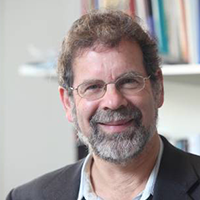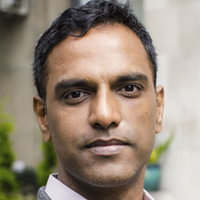The aim of this interdisciplinary course is to explore how digitalisation is shaping health systems, experiences, and outcomes across the world. Rather than an introduction to digital health or a how-to guide to implement it, this course zooms out to consider the political, cultural, social, and ethical issues that are arising in the digitalisation of health today.
Course description
Digital infrastructures, including cables, satellites, data centres, computing devices, codes, algorithms, data and standards, have been expanding across the globe, joined by changing forms of expertise and knowledge. These infrastructures – often these days associated with capitalist political economies – are shaping diverse aspects of life from agriculture to entertainment to health. In the field of health, many actors, from governments to aid donors to companies, believe digitalisation can transform healthcare delivery and health outcomes for the better.
The course will explore how processes of digitalisation interweave with the efforts of multiple actors to achieve health and well-being for themselves and others. It will examine various issues such as equity, privacy, safety, appropriateness, and the divergent interests that shape digital health. And it will explore how public health, healthcare services and health-seeking are transforming in the digital era.
The course will include both the global North and South, with a particular emphasis on how digital technologies are designed and shape health in lower-resource settings. It will draw on real-life, contemporary examples, including, among other things, epidemic surveillance apps in the Covid-19 response, digital crowdsource funding for medical expenses, and AI-driven remote diagnostics.
The course will be led by Tom Neumark, with Katerini Storeng, from the Global Health Politics group at the Centre for Development and the Environment, University of Oslo. It is funded by SAMEVAL network support grant awarded to the Global Health Politics group by the Norwegian Research Council.
The keynote lecture will be given by Prof Daniel Miller. Further teaching will be given by lecturers including Vincent Duclos, Nora Kenworthy, Claudia Lang, Stephen Roberts and Sridhar Venkatapuram, offering perspectives from a range of disciplines from anthropology to philosophy.
We will also incorporate practitioner perspectives from those involved in designing and implementing digital health solutions.
Objectives and learning outcomes
The course will enable doctoral students to better understand key concepts, debates and perspectives on digitalisation as it relates to health, based on up-to-date literature – and on recent developments ‘on the ground’.
Students will
- Obtain a nuanced understanding of processes of digitalisation as it pertains to health
- Be well acquainted with the major theoretical and empirical social scientific approaches to the study of digitalisation and health
- Engage in critical discussion, become acquainted with the work of others on digital health, and build networks within their chosen field of research.
Delivery
This four day intensive course will be taught face-to-face at the Centre for Development and the Environment (SUM), University of Oslo, and involve lectures, small group discussions and seminars. In the event of new pandemic-related restrictions that make face-to-face teaching unfeasible, the course will be taught digitally.
The course will allow those conducting Ph.D. research to learn about the social, cultural and political dimensions of digital health guided by experienced academics and practitioners who are themselves working in this field.
Following the course, participants will also be required to submit a research paper. This paper will be evaluated and approved after the course (please consult the section on ‘Credits’ below).
Course capacity: 18 students
Language of instruction: English
Lecturers
 Daniel Miller, University College London
Daniel Miller, University College London
 Vincent Duclos, the Université du Québec à Montréal (UQAM)
Vincent Duclos, the Université du Québec à Montréal (UQAM)
 Nora Kenworthy, University of Washington
Nora Kenworthy, University of Washington
 Claudia Lang, Universität Leipzig
Claudia Lang, Universität Leipzig
 Sridhar Venkatapuram, King's College London
Sridhar Venkatapuram, King's College London
 Katerini Storeng, University of Oslo
Katerini Storeng, University of Oslo
Stephen L. Roberts, University College London
 Tom Neumark, University of Oslo
Tom Neumark, University of Oslo
Who may apply?
The interdisciplinary nature of the course will be most suitable for doctoral students engaging with different disciplines within the social sciences – such as anthropology, sociology, political science, geography, and development studies.
Doctoral students will be prioritised, although master’s students may be considered only if space permits.
Funding
The course is free. Travel and accommodation scholarships are available to a limited number of students from outside of Norway. For those within Norway but not at the University of Oslo, it is possible to apply for a travel and accommodation grant from the Norwegian Research School of Global Health, providing you are a member.
Application procedures and form
Interested students should state their motivation and upload the following via the Application Form.
- A cover letter (max 2 pages) signed by your Ph.D. supervisor or another person at your institution/workplace, stating your academic background and academic degree(s) held, your research projects (if any), including estimated date of submission of doctoral thesis, and explaining your interest and motivation to apply for the course.
- CV (max 2 pages)
- Students from outside Norway may apply for a modest travel scholarship and/or accommodation support, by uploading a separate document along with their course application. If you wish to apply for a travel scholarship, please also attach a budget based on minimum cost travel. Students are responsible for ensuring they have appropriate travel permits/visas. A letter of invitation can be provided, if required.
The application deadline was 1 May, 2022.
Preparations and credits
The major purpose of the course is to interactively learn about the social, cultural and political dimensions of digital health. It is therefore important that participants read the required readings in advance of the course.
Another purpose of the course is to help students develop their on-going work. In order to receive 10 credits, it is a requirement for participants to submit a piece of written work after the course is finished (see below). To support this, we will establish small peer-review groups, after the course, to provide feedback on drafts of this work.
Syllabus and programme
A reading list will be available on the course’s intranet site by 8 May, 2022. As this course takes place over a short period of time and requires active participation from students, students are expected to read the syllabus in advance of the course.
Participants are expected to attend morning and afternoon sessions, and evening sessions when relevant, on all four days.
Paper structure
The paper should be on the topic of the digitalization of health and society, and be 15 – 20 pages (6000 - 8000 words) in length.
The paper should conform to the conventional criteria for academic writing. This means using (and referencing) academic literature, related to the Ph.D. course, to support an argument. The paper may take the form of an empirical or theoretical analysis, and could be a literature review. We welcome submissions that can contribute to your Ph.D. thesis or proposal.
Paper submission and assessment
Papers should be submitted by 15 August 2022. Papers will be evaluated within four weeks after submission by two course lecturers who will provide separate comments but a joint, agreed upon, grade (pass/fail).
Before submission of the final paper, students are encouraged to contact each other, through the Facebook group or otherwise, to share drafts and provide each other with feedback.
Credits
Course participants will receive a Course Certificate, recommending either 10 or 3 ECTS credits, but your own institution must approve credits for the course. We therefore recommend that you contact your Ph.D. coordinator about the issue of credits prior to your participation.
10 ECTS credits will be recommended for those who submit a paper and pass, 3 ECTS credits will be recommended for those who participated in the course in full but who have chosen not to submit a paper for evaluation (or for those whose paper does not pass).
Contact information
Should you have any practical enquiries, please do not hesitate to email the course secretariat at digitalhealth2022@sum.uio.no
